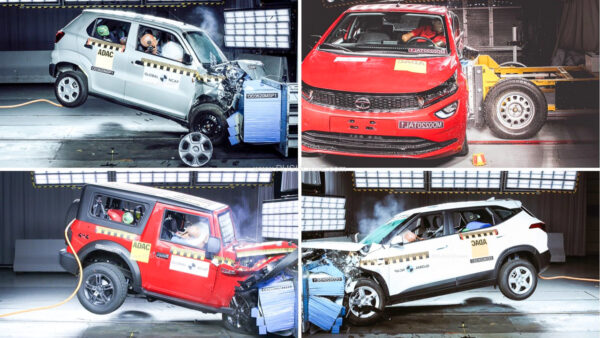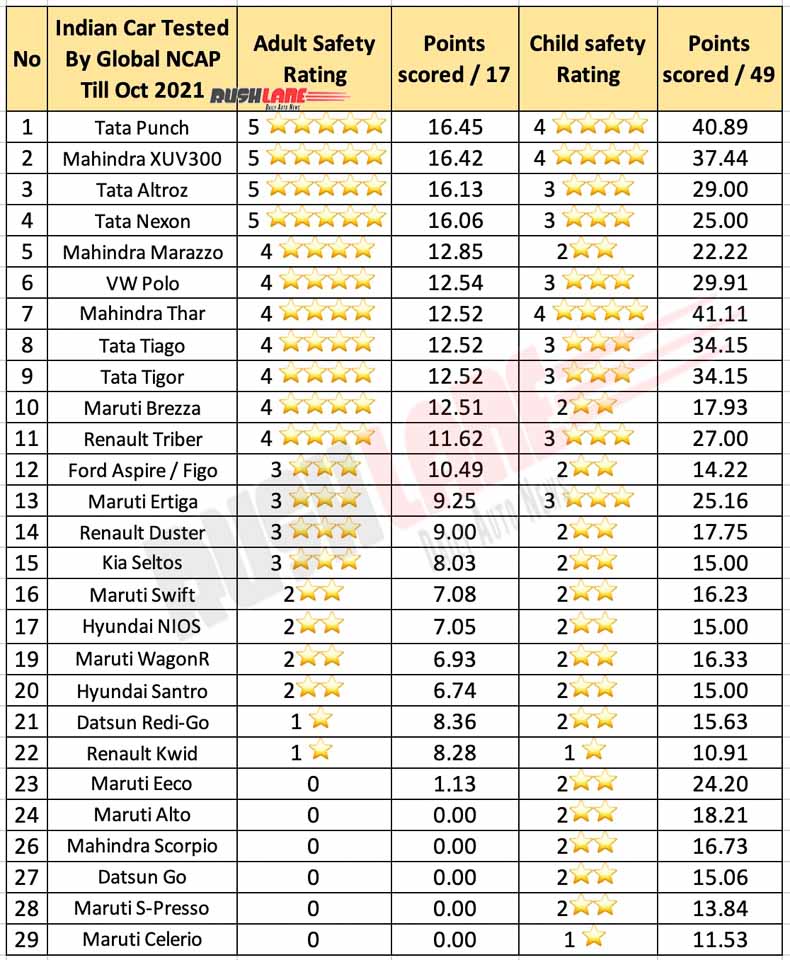
NCAP has been playing a key role in creating awareness about car safety in several global markets
Not very long ago, car safety was largely a non-issue in the country for most users. There were cars that did not even have airbags. Things have changed dramatically in recent years with growing awareness about car safety among consumers.
Global NCAP has played a major role in creating car safety awareness in India. Crash tests conducted by Global NCAP and subsequent ratings have contributed in creating awareness. With video evidence of crash tests and quantification of safety parameters, consumers have been able to better understand the importance of car safety.
How Global NCAP Works – Voluntary Test Procedure
As it’s a private, independent organization, there could be questions about its functioning and objectives. For example, some users had queried if NCAP is selective in its approach to carry out the crash tests. To bring about greater transparency, Global NCAP has revealed the complete process of how cars are procured for testing under the Voluntary Test Procedure.
Under this, Global NCAP’s testing process is initiated when it gets a request from the manufacturer. This is a completely voluntary procedure wherein an OEM will ask for a specific model to be tested.

Selection of car – To avoid any type of manipulation on part of the OEM, the car is chosen by Global NCAP. If the car is already available for sale, it is randomly sourced from any dealership in an anonymous manner. For cars in production, but yet to be launched, it is randomly selected directly from the plant. This selection is done in a manner to avoid any special series of cars produced.
Invite to company representative – To ensure transparency, the crash test is carried out in the presence of company representative. Crash tests are followed by detailed technical inspection. After this, reports are generated and shared with the manufacturer. Global NCAP then holds a meeting with the manufacturer to discuss the results of the crash tests. The reports are subsequently published on Global NCAP’s communication channels.
Global NCAP has not revealed how they procure cars when an OEM does not approach them. For example, Maruti had stated in the past that they do not want their cars to get tested by Global NCAP. But even then, there are Maruti cars which have been crash tested by Global NCAP.
Who bears the expenses?
It is apparent that cars are completely destroyed during crash tests. And there are likely multiple units used for tests like frontal impact, side impact, etc. Adding to that is the cost of crash test equipment, which includes both hardware and software. Manpower costs also need to be considered.
Once the crash tests are complete, Global NCAP sends the invoice to the manufacturer. The invoice lists all the relevant expenses related to carrying out the crash tests. These are then reimbursed by the manufacturer. It is not clear who bears the bill when the crash test is not voluntary.
With increased awareness about car safety, OEMs are keen to improve safety of their vehicles. In recent times, we have seen several cars achieve 5-star and 4-star safety rating in NCAP tests. As of now, the safest car in India as per Global NCAP is Tata Punch.
It has received 5-star adult safety and 4-star child safety rating. Overall score is 40.89 out of a total of 49. This is the highest ever for any car tested by NCAP in India. Other 5-star rated cars in India are Mahindra XUV300, Tata Altroz and Tata Nexon.

